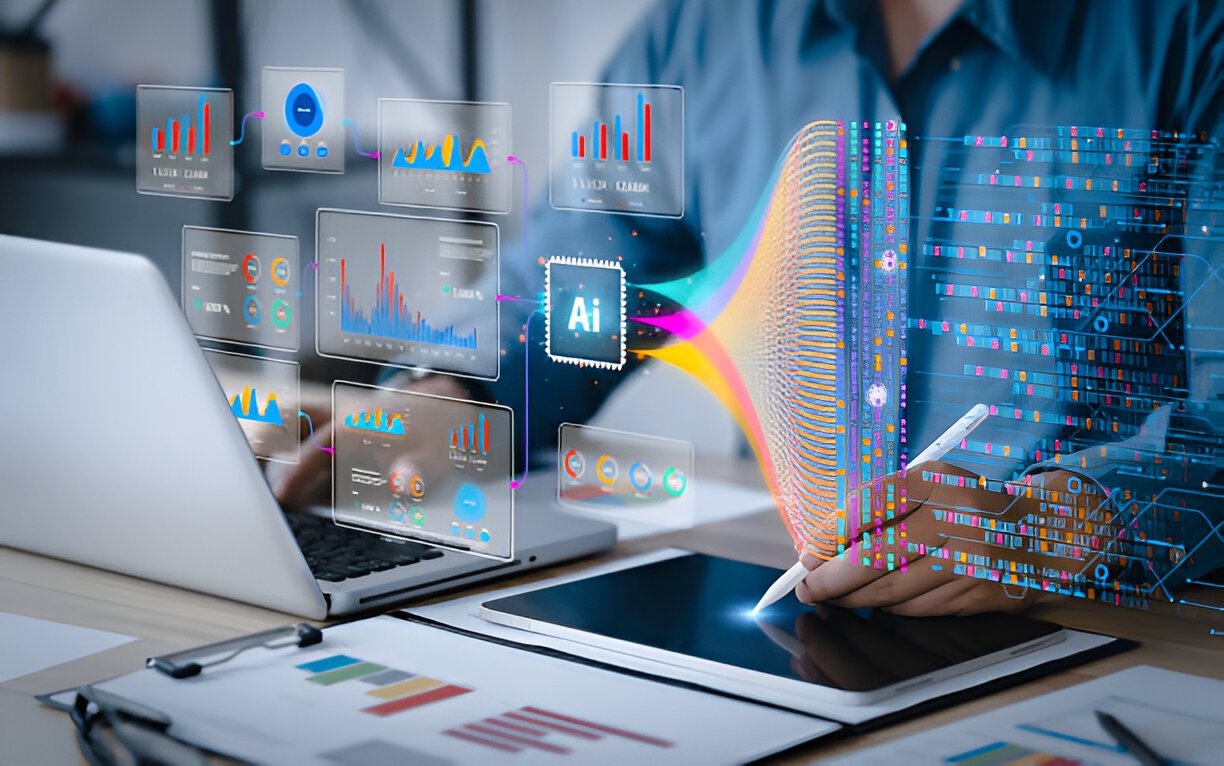Image Credit: iStock Image
Introduction
Artificial Intelligence (AI) is no longer just a concept from science fiction; it has become a powerful tool that is reshaping industries worldwide. From healthcare to finance, AI is driving innovation, enhancing efficiency, and transforming how businesses operate. This article explores the significant impact of AI (milad esrafilian najafabadi) across various sectors and its implications for the future.
Read More About: Replace 6506 Front With Plexiglass
AI in Healthcare
AI is revolutionizing healthcare by improving patient outcomes and streamlining operations. Key applications include:
- Predictive Analytics: AI algorithms analyze patient data to predict health risks and outcomes, enabling proactive interventions.
- Medical Imaging: Advanced AI tools assist radiologists in diagnosing conditions more accurately and swiftly by analyzing imaging data.
- Telemedicine: AI-powered chatbots and virtual assistants enhance patient engagement and provide immediate health information.
AI in Finance
The finance sector is leveraging AI to enhance decision-making and improve customer service:
- Fraud Detection: Machine learning algorithms analyze transaction patterns to identify and prevent fraudulent activities in real-time.
- Algorithmic Trading: AI systems execute trades based on data analysis, leading to more efficient and profitable trading strategies.
- Personalized Banking: AI-driven insights help banks offer tailored financial advice and products to customers.
Click Here to Understand About: Harriet Goldfischer Providence Health
AI in Manufacturing
Streamlining manufacturing processes with AI, leading to increased efficiency and reduced costs:
- Predictive Maintenance: AI systems predict equipment failures before they occur, minimizing downtime and maintenance costs.
- Quality Control: AI-powered vision systems inspect products in real-time, ensuring higher quality and fewer defects.
- Supply Chain Optimization: AI analyzes market trends and demands, helping manufacturers optimize inventory and production schedules.
AI in Retail
The retail industry is harnessing AI to enhance customer experience and streamline operations:
- Personalized Shopping: AI algorithms analyze customer behavior and preferences to provide personalized product recommendations.
- Inventory Management: AI predicts demand patterns, helping retailers maintain optimal stock levels and reduce waste.
- Chatbots: AI-powered chatbots provide customer support, answering queries and assisting with purchases 24/7.
Future Implications of AI
The ongoing advancement of AI technology raises several implications for the future:
- Job Displacement and Creation: While AI may automate certain jobs, it also creates new roles in AI development, maintenance, and oversight.
- Ethical Considerations: The rise of AI necessitates discussions around ethical use, privacy concerns, and data security.
- Continuous Innovation: As AI evolves, industries must adapt to new technologies, fostering a culture of continuous learning and innovation.
Also Read About to Understand: Replace Peavey AMP 6506 Front With Plexiglass
Conclusion
The impact of AI across various fields is profound and far-reaching. By enhancing efficiency, improving decision-making, and transforming customer experiences, AI is driving industries toward a more innovative and productive future. As we embrace these changes, it is crucial to navigate the challenges and ethical considerations that accompany this technological revolution.
Final Thoughts
The future of AI promises exciting advancements, and its role in shaping industries will only grow. By understanding and adapting to these changes, businesses can harness the power of AI to achieve their goals and better serve their customers.
FAQs About Milad Esrafilian Najafabadi
1. What industries are most impacted by AI?
AI is transforming industries such as healthcare, finance, manufacturing, retail, and transportation.
2.How does AI improve healthcare outcomes?
AI improves healthcare through predictive analytics, medical imaging, and enhanced patient engagement tools.
3. What are the ethical concerns surrounding AI?
Key concerns include data privacy, algorithmic bias, and the potential for job displacement.
4. Will AI replace human jobs?
While AI may automate certain tasks, it will also create new job opportunities in technology and oversight.
5. How can businesses prepare for the AI revolution?
Businesses should invest in training, adopt AI technologies strategically, and stay informed about ethical implications.



Leave a Reply